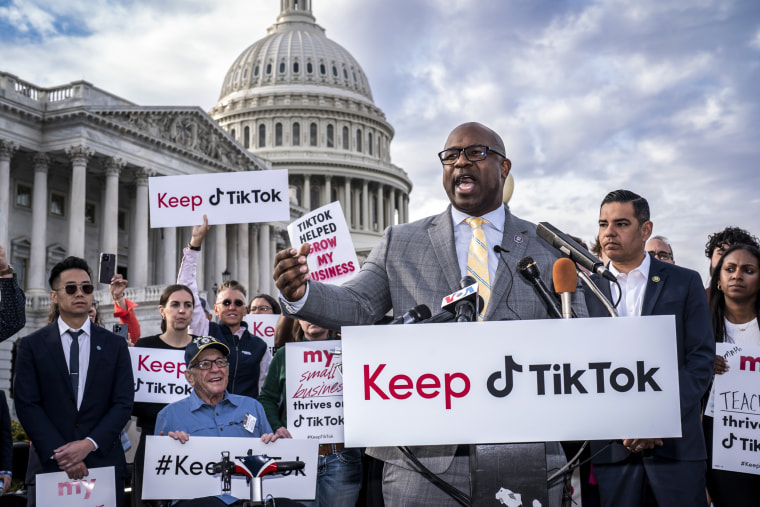TikTok was centerstage on Capitol Hill, but the social media app’s future is still up in the air as Congress and President Joe Biden's administration weigh banning the platform.
TikTok CEO Shou Zi Chew testified before the House Energy and Commerce Committee for nearly five hours as lawmakers pressed him on the app’s national security threats given its ties to China and data privacy concerns, but seemed largely skeptical of his answers.
Rep. Jamaal Bowman, D-N.Y., defended the app as a space for individuals to share ideas but said Americans need to know what is happening with user data.
“What in the world is happening with my data as we speak? What are you doing? Where is it? Where does it go? Who is it being sold to? We need that education,” Bowman said in an interview on Thursday on Meet the Press NOW. “We have no idea. Our data is just out there somewhere and it’s being used. … All of this data is out there. We have no knowledge of it. First, we need knowledge. Second, we need consent.”
Bowman said concerns about user data apply not just to TikTok, but other social media apps like Facebook whose algorithms and advertising infrastructures are driven by user generated data.
Rep. Jay Obernolte, R-Calif., who questioned Chew during Thursday's hearing, shared similar sentiments toward the dangers of data used to generate algorithms.
“The algorithm is not what matters. They are very simple. It is the design and the way it is trained,” Obernolte said on Meet the Press NOW on Thursday. “What matters is the data, the huge sets of data that you are using to frame the algorithms. Then the output of those algorithms. It could be changed at any time. That is the real danger here.”
Obernolte said the solution is not to ban TikTok or rely on warning labels, but rather to address the larger problem of accumulation of user data.
“I’m not a big fan of government warning labels. If you’re going to have one, you have to be very explicit about what you are warning against and what you should do about it,” Obernolte said, “the solution to this is not banning specific apps.”

